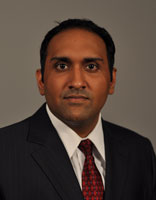 One of the highlights of the Fuqua Week in DC (WIDC) course was hearing from Mr. Lyle Denniston, who has been covering the Supreme Court for 57 years and writes for scotusblog.com, about how the Supreme Court has handled the ACA. He gave our group a comprehensive history of court’s decisions regarding the ACA, including insights on the NFIB (National Federation of Independent Business) vs. Sebelius case from 2012. Interestingly, he was the first to correctly report the verdict of the NFIB case; channels such as CNN and Fox, in a rush to break the news, incorrectly reported that the Supreme Court had ruled that the ACA was unconstitutional.
One of the highlights of the Fuqua Week in DC (WIDC) course was hearing from Mr. Lyle Denniston, who has been covering the Supreme Court for 57 years and writes for scotusblog.com, about how the Supreme Court has handled the ACA. He gave our group a comprehensive history of court’s decisions regarding the ACA, including insights on the NFIB (National Federation of Independent Business) vs. Sebelius case from 2012. Interestingly, he was the first to correctly report the verdict of the NFIB case; channels such as CNN and Fox, in a rush to break the news, incorrectly reported that the Supreme Court had ruled that the ACA was unconstitutional.
Denniston spoke to our group at length about the upcoming battle in the Supreme Court – King v. Burwell – on whether the federal government can extend its program of subsidies to buyers of health insurance in federally operated exchanges in 34 states. According to him, if the court decides to limit subsidies only to the state-run exchanges, it would result in the complete unraveling of the ACA.
At the heart of the King v. Burwell case are four words in the ACA: “established by the State,” and the future of the ACA will depend on how the nine justices interpret those words. When the subsidies were setup, Congress wrote that it would apply to exchanges “established by the State.” But if a state did not setup an exchange, can it still receive federal subsidies? The plaintiffs in King argue that the ACA authorizes federal subsidies only for individuals who purchase insurance on state-established exchanges and not for those who do so on exchanges established by the federal government.
While to the casual observer, it may seem preposterous that the healthcare of several million people could be held hostage by “four words” in the ACA, Denniston explained the history and nuance behind how justices view the constitution and interpret law. Some judges believe in textualism – that a law’s ordinary meaning should govern its interpretation, as opposed to looking at the legislative intention behind passing that law. Other judges take a more holistic view, known as the purposive approach, and look at legislative intent as well consider relevant materials such as speeches given in Congress, committee memos and reports, white papers, etc.
Denniston gave our group some extremely interesting tips on what to look for ahead of the Supreme Court ruling on King v. Burwell. Chief Justice Roberts and Justice Kennedy are considered to be the “swing votes,” and the other justices are expected to vote along ideological lines. But Denniston admitted that very few, if any, were able to correctly predict the outcome of the NFIB case. Oral arguments in the King case will be heard on March 4th 2015 and the final decision will be made on the last week of June 2015.
